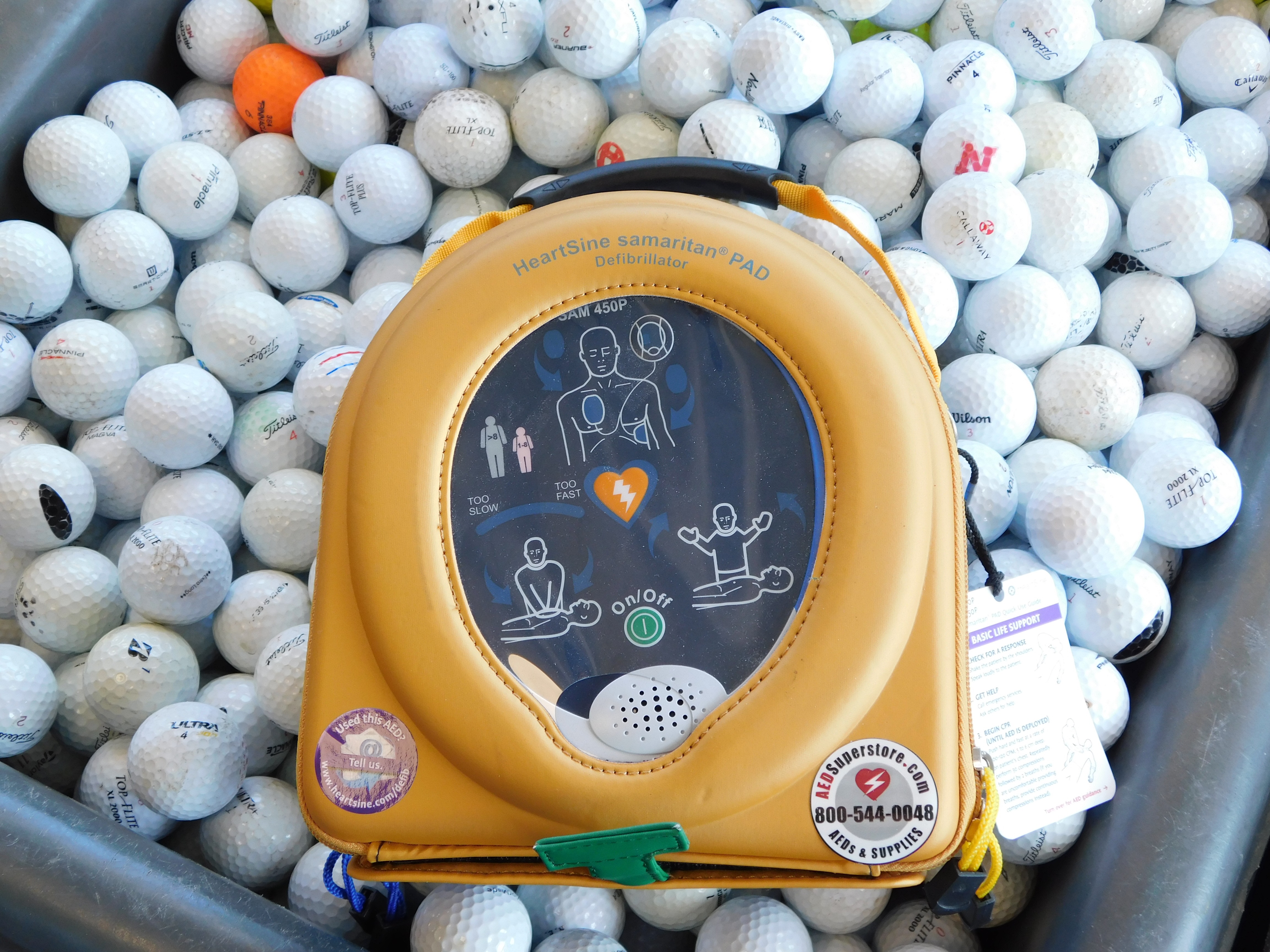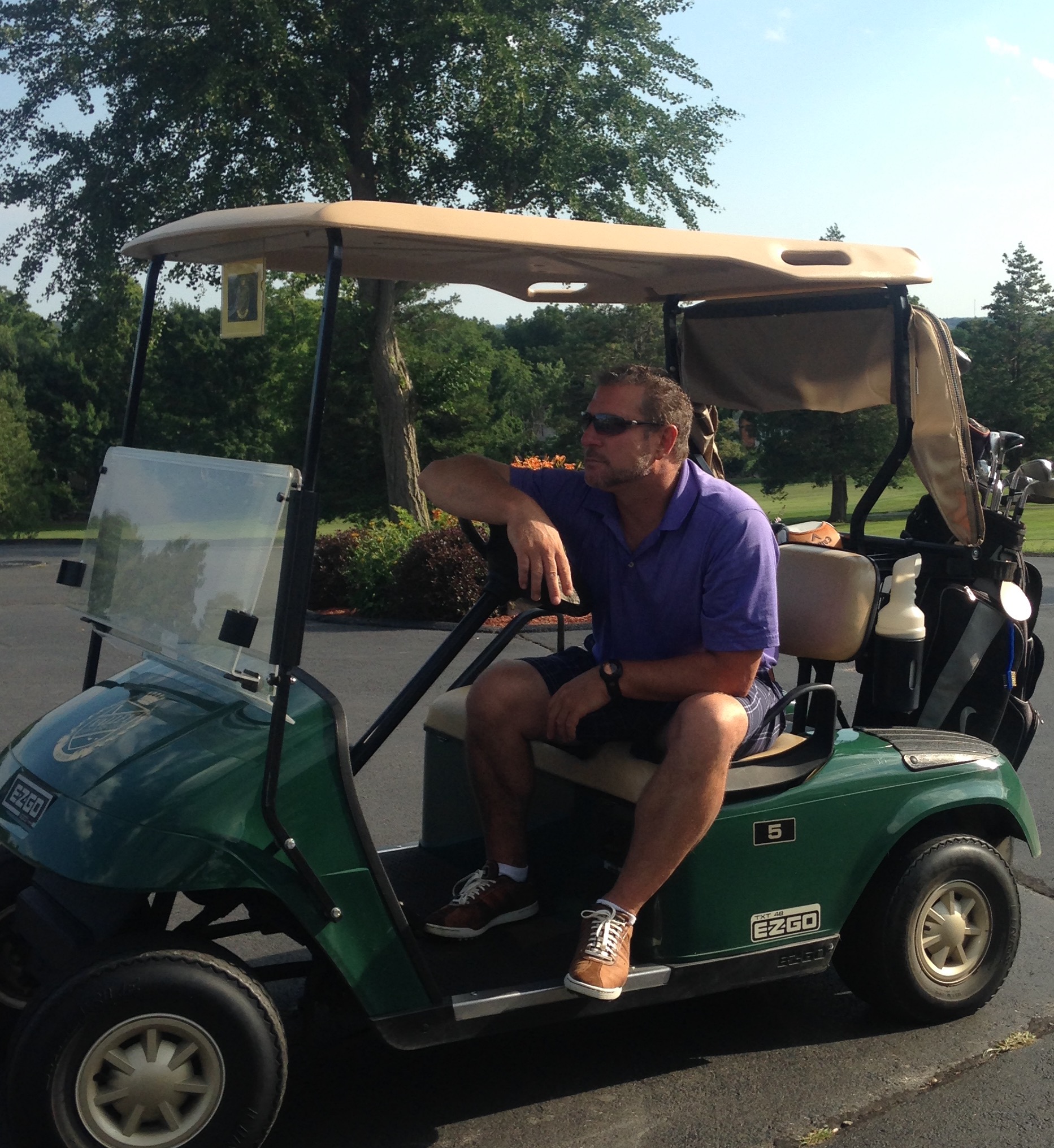Golfer wants memory of late husband to save a life
By Joe McDonald
RIGA Senior Writer

CRANSTON – Except the unseasonably warm weather, Feb. 16 started as a typical day for David and Betsy Casey.
It was a beautiful winter day with temperatures in the mid-60s, so David grabbed his clubs, called seven of his friends and planned a round of golf at Cranston Country Club. As he walked out of his house, Betsy said, “I love you. Hit ‘em straight.”
The eight friends arrived at Cranston CC ready for a day of camaraderie and golf.
“My husband, any chance to play golf – winter, summer – it didn’t matter. If he could go out on the links he was happy,” Betsy said.
A few hours later, she received a call that David suffered a heart attack on the 18th hole at Cranston. He hit his tee shot and collapsed.
His friends called 911 and started CPR. Local firefighter Steve Burgess was playing nearby and joined the effort to revive Casey. EMTs arrived and continued the process before transporting Casey to Rhode Island Hospital. Betsy arrived at the hospital and was unable to see her husband for nearly two hours because he was in and out of cardiac arrest.
He lost oxygen to his brain, so doctors sedated and intubated him in order to give his heart and lungs a chance to recover. The next day, the sedation was removed, David did not wake up and there was no brainstem activity.
“David was brain dead, so I wasn’t going to continue to have David live like that because that’s not my husband,” Betsy said. “My husband was very full of life, very active and would always want to be outside.”

David Casey was an organ donor, so Betsy said goodbye to her husband on Feb. 20. The organ donor team then went through its process. David Casey saved two other lives, a 70-year-old male with his liver and kidney, and a 60-year-old female with his other kidney.
While David was a veteran golfer, Betsy only started playing golf three years ago. The couple would play on a regular basis at Alpine and Betsy enjoyed the bonus time with her husband.
“I was doing this because when we retired I wanted to be able to play golf with him,” Betsy explained. “I didn’t want to be a golfer’s widow, and now I’m a widow anyway. My intent was this is something we can do together, and we enjoyed it.”
Betsy hasn’t played since David passed away, but she plans on getting out there once the warmer weather arrives. She’ll remain a member at Alpine and appreciates the help she received from her golf family at the club.
“Alpine isn’t just a country club; it really is a community and we support one another. I’m beyond blessed with the outpouring of support I received,” she said.
Betsy has a goal to honor her husband’s life. She’s spreading the word about the importance of having AEDs on golf courses.
Here are Betsy’s four goals:
- To have AEDs at every public and private golf course in the state, including in the clubhouse and on the course at the two furthest points.
- Laminated medical emergency cards on all golf carts to explain CPR and how to operate an AED. Also indicate where the AEDs are located on a golf course.
- Require staff to have CPR and AED training on an annual basis.
- Offer CPR and AED training to members of private clubs.
Most courses have AEDs on property, but Betsy believes clubs need to educate its members and golfers how to use the devices to save lives. A few courses also have an AED in the maintenance facility. Warwick Country Club has an AED on the golf course.
According to the Center for Disease Control’s public access defibrillation fact sheet, more than 356,000 out-of-hospital cardiac arrests are reported annually in the United States. It estimates that 70- to 90-percent of people experiencing cardiac arrest in these situations die before reaching the hospital.
“Cardiopulmonary resuscitation (CPR) and the use of an automated external defibrillator (AED) within minutes of (cardiac arrest) can dramatically raise survival rates,” the fact sheet reads.
However, the study also reported AED use at 10.8 percent in public settings before EMTs arrive. Betsy Casey wants to see that number increase, especially on golf courses in Rhode Island.
“If we save one life by doing this then we’ve made a difference,” she said. “I’m doing this to make sure David’s death makes a difference.”